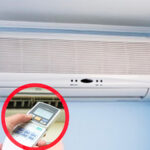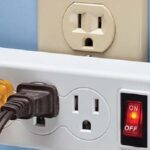Purchasing a low-quality air conditioner can lead to higher electricity bills, noise, frequent minor issues, and slow heating or cooling. Therefore, it is essential to do thorough research before buying an air conditioner.
I have personally bought three air conditioners, and due to my lack of experience, I had to replace them multiple times. Now, I understand that one should not solely rely on the seller’s recommendations. When buying an air conditioner, it is advisable to follow the rule of “4 don’ts and 3 dos”:
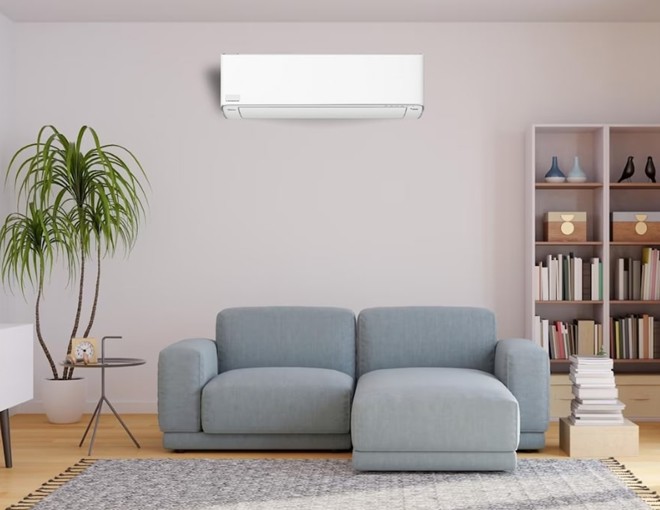
4 types of air conditioners not to buy
– Avoid air conditioners with low energy efficiency ratings
The energy efficiency of an air conditioner directly impacts its energy consumption. The higher the energy efficiency rating of an air conditioner, the more efficient and electricity-saving it is.
There are two types of energy efficiency ratings for air conditioners: EER for conventional air conditioners and CSPF for inverter air conditioners. Manufacturers display these energy efficiency ratings on the energy labels of the appliances.
Energy labels usually have a row of energy stars, which makes it easier for consumers to compare the energy efficiency and electricity-saving capabilities of different air conditioners. In the case of two air conditioners with the same number of energy stars, the one with a higher energy efficiency rating will be more electricity-saving.
Hence, when purchasing an air conditioner, pay attention to the energy efficiency rating and opt for the one with a higher rating to save on electricity bills. Avoid air conditioners with low energy efficiency ratings as they can be costly in the long run.

– Avoid conventional air conditioners
Air conditioners can be categorized into two types: conventional and inverter. Conventional air conditioners are usually more affordable, but their compressors operate at a fixed frequency, resulting in frequent on-and-off cycles that consume more electricity.
On the other hand, inverter air conditioners (also known as variable-frequency air conditioners) have compressors that can adjust their frequency. Once the desired temperature is reached, they automatically maintain a consistent low power, eliminating the need for constant on-and-off cycles and reducing electricity consumption.
Inverter air conditioners are also known for their longer lifespan and faster cooling capabilities. Therefore, when choosing an air conditioner, it is recommended to opt for an inverter type, despite its higher price tag, as it will provide a more comfortable experience and save electricity in the long run.
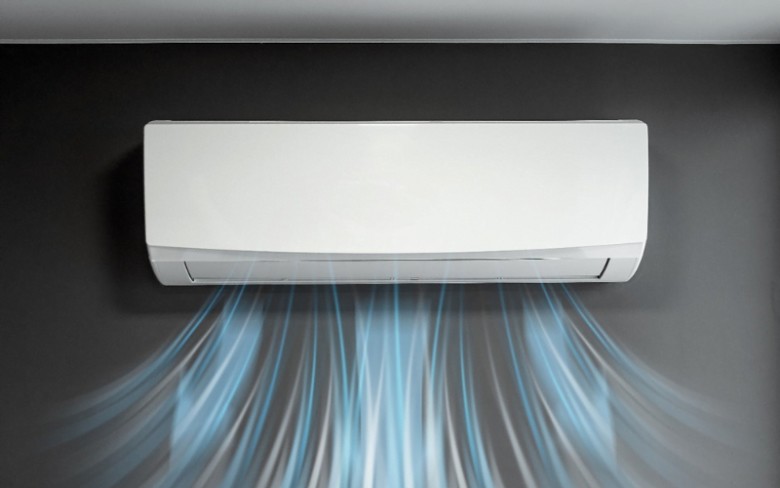
– Avoid air conditioners that are not suited for the room size
The capacity of an air conditioner should match the room size. If the room is spacious, choosing an air conditioner with a smaller capacity will result in higher energy consumption and electricity bills. Conversely, selecting an air conditioner with a higher capacity than necessary for a small room will lead to unnecessary waste.
It is best to install an air conditioner that is appropriately sized for the room to achieve optimal cooling performance and cost efficiency. The following formula can be used to calculate the required capacity of an air conditioner based on the room size, considering a standard ceiling height of 3 meters or less (the average ceiling height in Vietnam):
Required capacity (in BTU) = Room size (in m2) x 600 BTU/m2
BTU, or British Thermal Unit, is a unit of heat used to measure the cooling or heating capacity of appliances. It is equivalent to 9,000 BTU = 1 HP (horsepower).
For example, if you have a 15 m2 room, the calculation would be: 15 m2 x 600 BTU/m2 = 9,000 BTU, which corresponds to a 1 HP air conditioner. For a larger room of 30-40 m2, a 24,000 BTU air conditioner would be suitable, while for a 60 m2 room, a 48,000 BTU unit should be considered.
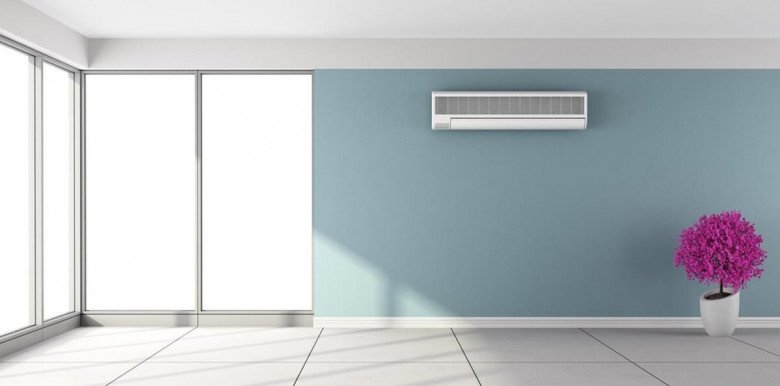
– Avoid air conditioners with unbranded compressors
The quality of an air conditioner heavily relies on its compressor, which is often referred to as the “heart” of the appliance. Well-known brands typically offer compressors with a lifespan of around 10 years and provide a warranty of about 6 years. However, if you opt for a generic brand, the compressor may only last a few years before requiring replacement.
Additionally, the cooling and heating performance of such unbranded compressors tends to be inferior, and warranty claims can be challenging. Therefore, when purchasing an air conditioner, avoid unbranded options, especially those with unbranded compressors.
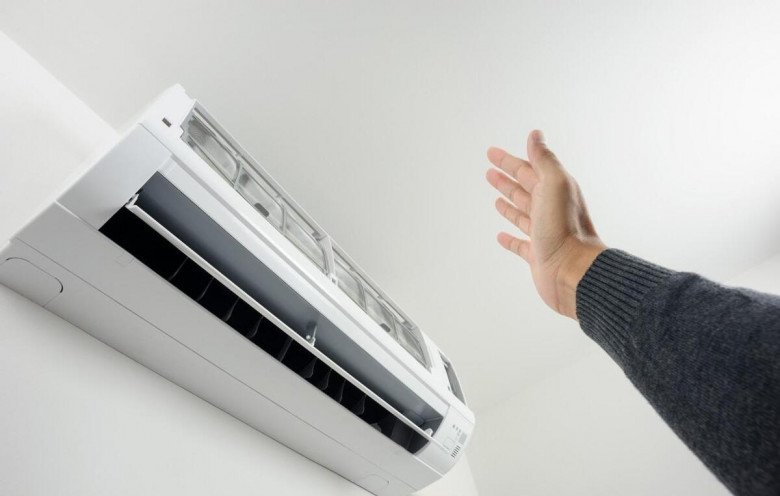
The 3 “dos” when buying an air conditioner
– Opt for air conditioners with adjustable airflow direction
When purchasing an air conditioner, look for one that allows you to change the direction of the airflow. This feature enables you to control the airflow from multiple angles, creating a wider and more even distribution of air in the room. Additionally, you can adjust the airflow to avoid direct contact with the breeze, preventing air-conditioning-related illnesses.
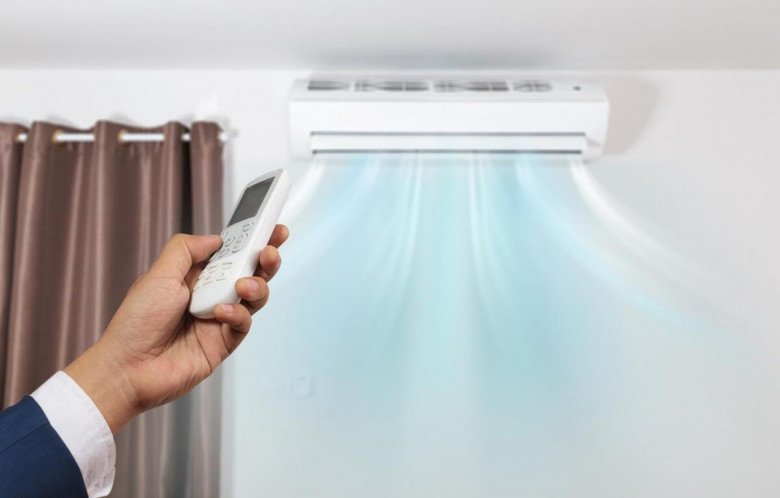
– Choose air conditioners with fresh air intake
Using an air conditioner for extended periods can degrade air quality, making you feel stuffy due to the lack of circulation with outside air and reduced oxygen levels. Therefore, it is advisable to select an air conditioner with a fresh air intake function, as it will significantly improve the indoor air quality.
The fresh air intake feature ensures proper ventilation and timely purification of indoor air, reducing harmful substances and maintaining a healthy environment.
– Select air conditioners with self-cleaning filters that are easy to remove and install
Air conditioners require regular cleaning, not just the filters but also the interior components. Over time, bacteria such as dust mites and E. coli can proliferate inside the air conditioner, and these bacteria are then released into the room when it is in use, affecting the indoor air quality.
It is best to choose an air conditioner with self-cleaning filters that can be easily removed and installed, making the cleaning process more accessible. If this feature is not available, it is recommended to hire a professional to thoroughly clean the air conditioner to ensure that the air circulated in the room is fresher and healthier.
The Power of Lemons: Repel Insects and Sleep Tight
“Recently, there’s been a buzz among parents about an intriguing method to create a soothing and protective environment for their children. The trick? A trio of natural ingredients: lemon, salt, and eucalyptus oil. This combination is believed to be a powerful remedy to combat stress, repel insects, induce deeper sleep, and boost immunity when spending time in air-conditioned rooms. It’s a simple yet effective hack that every parent should know about to create a healthier and more comfortable environment for their little ones.”
























